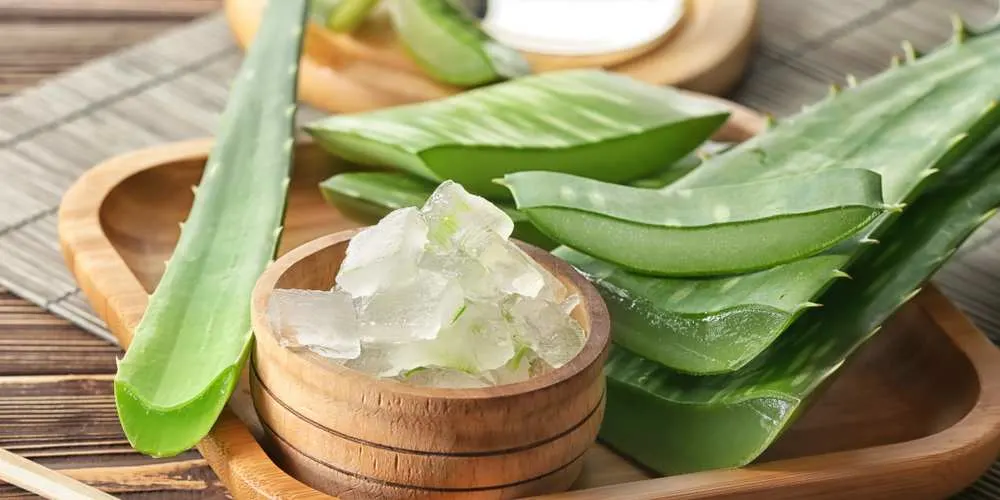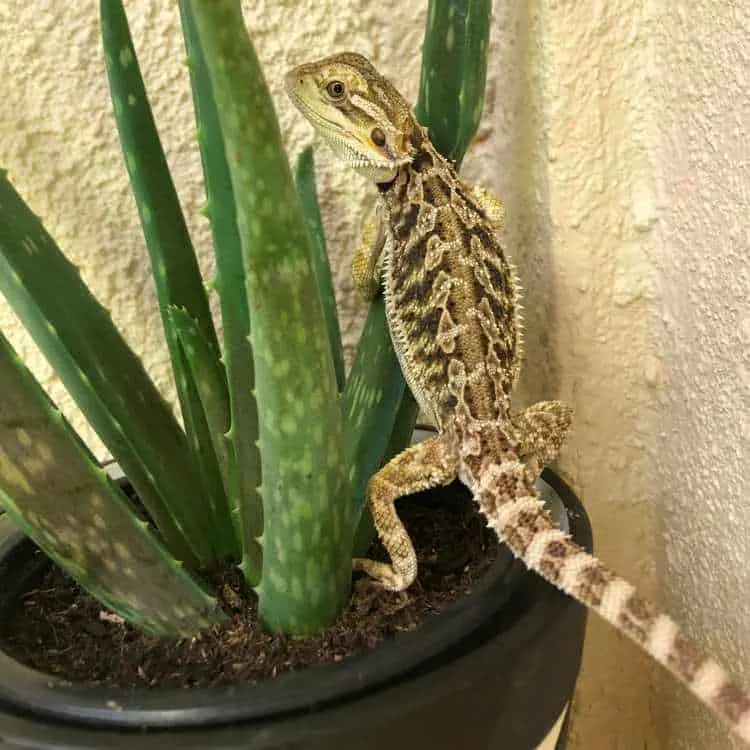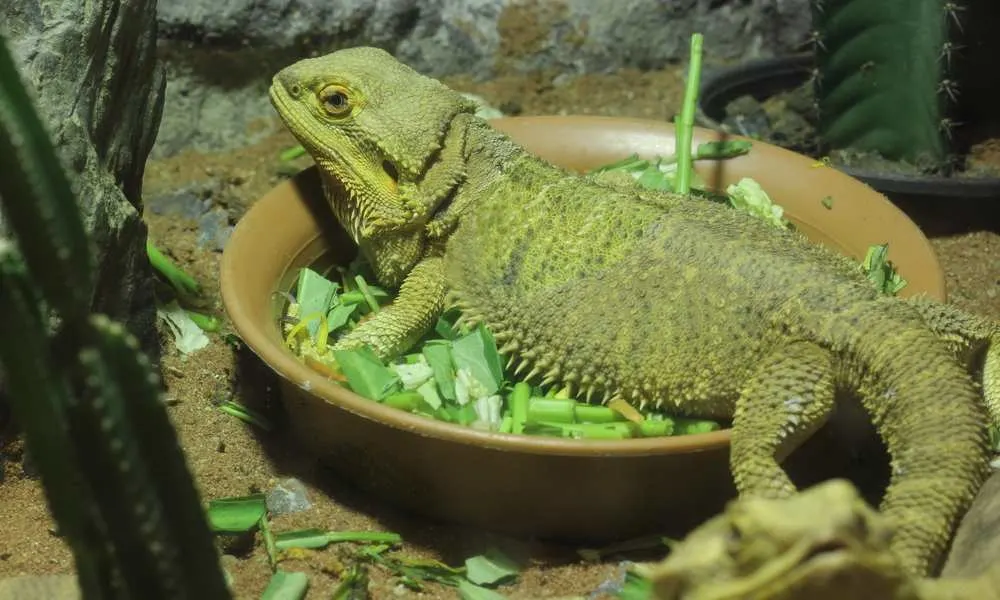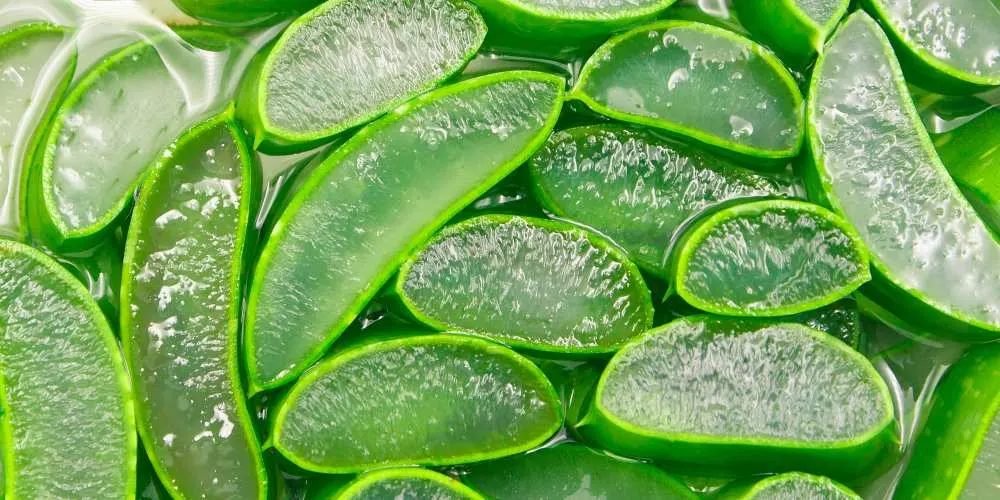We love the smell of aloe vera, but is this something that your pet can consume? What about bearded dragons? Can my beardie have a taste of this?
We are no strangers to using the gel from aloe vera, but have you ever thought more about the plant and its uses? You have a bearded dragon who basically loves eating plants, so is this something you can throw in its meals? Can bearded dragons eat aloe? Um, you better think twice before you do it.
Aloe vera might have a pleasant smell and lots of other benefits, but some rules do not apply anymore when it comes to culinary use. Stay with us, and we’ll explain how you should handle aloe vera in the presence of your beardie and if this is a dangerous snack.

Can Bearded Dragons Eat Aloe?
The smell of aloe vera has certainly stunned you, and surely a vast majority have this plant in their homes. However, it would be best to leave it that way.
Unfortunately, your beardie is not allowed to eat aloe vera because it has a detrimental effect on its health. Also, your beardie needs nutritional foods, and aloe vera is not one of them.
Here’s what 8-ounce of pure aloe vera contains:
| Calories | 8 |
| Proteins | 1 gr |
| Fat | 1 gr |
| Carbs | 3 gr |
| Fiber | 2 gr |
| Sugar | 1 gr |
When you look at this table, it is clear that the nutritional value of aloe vera is very small. Some people would think that a lack of carbs and sugar may be an advantage, but this is not true.
Even with a small number of carbohydrates, this plant is not recommended for consumption – especially when it comes to your beardie.
It is known that the diet of bearded dragons changes with age and weight. Therefore, questions like this are frequently asked by new owners:
- Can a bearded baby dragon eat aloe?
- Is a senior bearded dragon allowed to eat aloe occasionally?
Unfortunately, the answer to both questions is NO, but the explanation is a little different.
As for baby bearded dragons, aloe vera is by no means recommended to be included in the diet. Babies need to have a steady and proven diet. Consuming such a toxic plant can cause severe reactions.
It is similar to older bearded dragons. Unlike babies, who need a slightly stronger diet, older beardies should rely on not-so-strong foods but should maintain their health and skin. Consuming aloe vera can easily disrupt this.
Also, some people include such plants in the diet of their bearded dragons for weight loss.
This is a huge mistake!
With a plant like this, you can only cause the opposite effect. So, before you include something you know little about, consult a professional.
In short, regardless of weight, age, or the health of your bearded dragon, aloe vera is by no means an acceptable food!

The Laxative Effect
The main reason why aloe vera is not allowed in your beardie’s diet is because of its content – aloe vera latex.
This is a yellowish liquid that comes from this plant. It is mainly known for its healing effect, but different rules apply when it comes to its edibleness.
Basically, you will only see this liquid when you cut the aloe vera in half. After a few seconds or by your pressure, you can see latex leaking from inside the plant.
This so-called laxative effect is detrimental to your beardie. If your beardie consumes this, it can create side-effects such as:
- Allergic reactions
- Internal abdominal irritation
- Dehydration
- Diarrhea
Many animals are actually allergic to aloe vera and its scent. Your beardie might not be allergic; however, consuming its liquid can very easily cause such a reaction.
Secondly, this substance is actually very toxic when swallowed so it can cause internal irritation. This may not be visible to the naked eye, but it will be apparent to you after your beardie starts scratching, vomiting, and so on.
The latex is too strong a substance for your beardie and it can also cause dehydration. After just a few seconds after consuming it, you will notice that your beardie is reaching for the water bowl.
The last outcome of consuming this is diarrhea. This is also the most common outcome given the strength of this substance. Also, your beardie is not used to this ingredient, so its stomach will try to get rid of it right away.
Excessive amounts of this herb can lead to your beardie ending up at the vet with severe nausea. Therefore, try not to give this plant to your beardie, even as a snack.
NOTE: Don’t be easily fooled; this plant can also be harmful to people. Aloe vera creates side effects in humans such as:
- Kidney issues
- Digestive disorders
- Adverse drug reactions
- Arrhythmia
- Muscle weakness

A Decorative Piece?
Take it from someone who has seen dozens of cases with aloe vera and bearded dragons went wrong. This might not be suitable for eating, but can it have any other purposes?
According to some people, you can put the aloe vera plant in your beardie’s cage for decoration. Is this a smart way to make it worthwhile?
I’d have to disagree, especially if your beardie had a history with it before.
Aloe vera is not toxic only to bearded dragons but to many other animals as well – cats and dogs. That’s why most owners keep it away from their pets’ presence and houses.
If you’re an owner of a bearded dragon, then you are probably aware of how small its cage must be, and putting this strong plant inside it can make the air suffocating.
Your beardie can start feeling nauseous after a few hours of inhaling aloe vera.
Some bearded dragons might even try to bite the leaves of the plant. By the time they figure out it’s actually bad for them, they’ll be experiencing some of the symptoms we mentioned above (irritation, diarrhea).
My advice would be to keep this plant away from your beardie’s cage.
Other Alternatives
Although aloe vera is off the decorative list, that doesn’t leave your beardie’s cage empty. Here are a couple of other alternatives that would go well instead:
- Leatherleaf sedge – this type of grass goes well with your beardie’s interior because it creates a desert atmosphere.
- Living stones – This is a stone-like plant that is really small, and you can grow them yourself.
- Nasturtium – This plant is both edible and non-toxic to your beardie. This little flower will brighten up the cage.
- Hibiscus – You might be surprised, but hibiscus can actually be used both as decoration and staple food for your bearded dragon.
- Clover – Clover leaves are a very common decorative piece in pet cages because they are harmless and edible.
- Wheatgrass – You can choose to grow this plant on your own, put it in a pot, your beardie’s cage, or simply feed it to them.
- Lettuce – Nothing can go wrong with putting a bit of lettuce in your beardie’s cage. You can just cut a few leaves and throw them in.

Your Beardie’s Health
Let’s take a moment and discuss your beardie’s general health. As you can see, even some plants that have been used for medical purposes can cause health problems.
Since you’re an owner and a cautious one at that, it wouldn’t hurt to brush up on some general information about your beardie’s possible health threats.
Let’s get right to it:
- Metabolic bone disease – This is a disease caused by insufficient intake of calcium. If you don’t treat this, it can be deadly.
- Yellow fungus – this is a fungus infection that’s common for bearded dragon babies since they are more open to exploring the outside of the cage.
- Parasites – Parasite infection can come both from external sources like backyards, but it can also come from foods that aren’t cleaned properly.
- Mouth rot – This occurs when the inside of your beardie’s mouth becomes irritated after consuming something toxic (avocados, for example).
- Impaction – This is also known as a complete blockage when your beardie is unable to digest the food properly and make bowel movements. It’s tightly connected to an insufficient-dietary plan.
- Diarrhea – We’ve mentioned diarrhea several times already, and the leading cause of this is toxic food, dirty water, stress, and parasites.
From the list above, you can conclude that all these health problems are more or less related to the way you feed your beardie.
What does that tell you?
Pay attention to what goes in the food bowl and what is just as a decoration. The wrong diet can cause enormous difficulties and even kill your pet.
To better understand what your beardie can and cannot eat, go check out: What Can Bearded Dragons Eat? 101 Food List.

